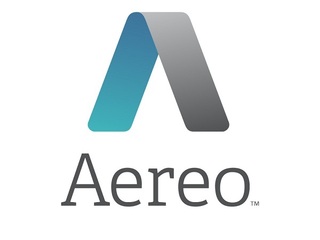
Supreme Court deals likely deathblow to Aereo
Court says the company is close enough to traditional cable companies to have violated Copyright Act

(Updated with statement from Aereo)
Well, that is probably all she wrote for Aereo. It was fun while it lasted.
In a 6-3 decision, the United States Supreme Court voted against Aereo on Wednesday, saying that the service violated the copyright of the broadcast networks, and was therefore illegal.
The New York City-based Aereo is a Web platform that allows users to watch live TV on their mobile devices or computers. It grabs over-the-air TV signals, using tiny antennas, and routes them to users over the Internet, so that customers can watch broadcast TV whenever, and wherever, they want.
No cable subscription is required to use Aereo and membership plans begin at $8 a month for 20 hours of DVR storage, or users can pay $12 a month for 60 hours of storage.
Aereo maintained that its service differed from cable companies in one key way: while cable companies are constantly streaming, Aereo remains "inert" until the user decides to use it. Justice Stephen Breyer, who wrote the majority opinion, did acknowledge this difference, but also noted that there were too many similarities between Aereo and a traditional cable company.
"The systems in those cases transmitted constantly, whereas Aereo’s system remains inert until a subscriber indicates that she wants to watch a program. In other cases involving different kinds of service or technology providers, a user’s involvement in the operation of the provider’s equipment and selection of the content transmitted may well bear on whether the provider performs within the meaning of the Act," he wrote. "But given Aereo’s overwhelming likeness to the cable companies targeted by the 1976 amendments, this sole technological difference between Aereo and traditional cable companies does not make a critical difference here."
And because of those similarities, the Court found that "Aereo is not simply an equipment provider."
"Aereo sells a service that allows subscribers to watch television programs, many of which are copyrighted, virtually as they are being broadcast," said Breyer.
The major issue that the broadcasters have had with Aereo, and which caused them to bring the service to court over the past year or so, is over retransmission fees, which requite cable operators, other distributors, to obtain permission from broadcasters before carrying their programming. Operators will often be asked to pay to carry the station.
Broadcast networks, like Fox and CBS, have said they might just quit the free TV business altogether if Aereo is allowed to survive. Sports leagues, including NFL and MLB, have also threatened to jump to cable.
In a statement put out following the ruling, Aereo CEO Chet Kanojia called the decision "a massive setback for the American consumer."
"We’ve said all along that we worked diligently to create a technology that complies with the law, but today’s decision clearly states that how the technology works does not matter. This sends a chilling message to the technology industry," he wrote.
So what does this decision mean going forward for Aereo?
While Kanojia has said in the past that there was no "plan B" should the company lose the case, making it seem very likely that Aereo could be dead, at least for now, he is still remaining defiant.
“We are disappointed in the outcome, but our work is not done. We will continue to fight for our consumers and fight to create innovative technologies that have a meaningful and positive impact on our world," he said.
Founded in 2011, Aereo was available in New York, Boston, Detroit, Cincinnati, Baltimore, Atlanta, Dallas, Austin, Houston, San Antonio, and Miami, with plans to expand to multiple cities around the country, including Minneapolis, Denver, Pittsburgh and Washington D.C.
Aereo had raised a total of $97 million, from investors that included IAC, Highland Capital Partners, FirstMark Capital, First Round Capital and High Line Venture Partners.
(Image source: gamesareevil.com)
Related News


Aereo to broadcasters: move to cable at your own risk

Aereo raises $38M to expand to 22 new cities

Aereo emerges victorious in ruling against broadcasters

DOJ urges Supreme Court to rule against Aereo

Could the success of Aereo lead to the end of free TV?

Aereo coming to 29 counties, launches first ad campaign


